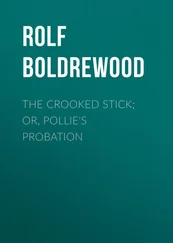Rolf Boldrewood - The Squatter's Dream
Здесь есть возможность читать онлайн «Rolf Boldrewood - The Squatter's Dream» — ознакомительный отрывок электронной книги совершенно бесплатно, а после прочтения отрывка купить полную версию. В некоторых случаях можно слушать аудио, скачать через торрент в формате fb2 и присутствует краткое содержание. Издательство: Иностранный паблик, Жанр: foreign_antique, foreign_prose, на английском языке. Описание произведения, (предисловие) а так же отзывы посетителей доступны на портале библиотеки ЛибКат.
- Название:The Squatter's Dream
- Автор:
- Издательство:Иностранный паблик
- Жанр:
- Год:неизвестен
- ISBN:нет данных
- Рейтинг книги:4 / 5. Голосов: 1
-
Избранное:Добавить в избранное
- Отзывы:
-
Ваша оценка:
- 80
- 1
- 2
- 3
- 4
- 5
The Squatter's Dream: краткое содержание, описание и аннотация
Предлагаем к чтению аннотацию, описание, краткое содержание или предисловие (зависит от того, что написал сам автор книги «The Squatter's Dream»). Если вы не нашли необходимую информацию о книге — напишите в комментариях, мы постараемся отыскать её.
The Squatter's Dream — читать онлайн ознакомительный отрывок
Ниже представлен текст книги, разбитый по страницам. Система сохранения места последней прочитанной страницы, позволяет с удобством читать онлайн бесплатно книгу «The Squatter's Dream», без необходимости каждый раз заново искать на чём Вы остановились. Поставьте закладку, и сможете в любой момент перейти на страницу, на которой закончили чтение.
Интервал:
Закладка:
The usual objections were made. The run was not large enough; the boundaries were inconvenient or not properly defined; the stock were not as good as had been represented; the improvements were not sufficiently extensive. This statement was made by a young and aristocratic investor, who was about to be married. He was very critical about the height of the cottage walls, and the size of the sitting-room. The buildings were too numerous and expensive, and would take more money than they were worth to keep in repair. This was the report and opinion of an elderly purchaser (Scotch), who did not see the necessity of anything bigger than a two-roomed slab hut. Such an edifice had been quite enough for him (he was pleased to remark) to make twenty thousand pounds in, on the Lower Murray, and to drink many a gallon of whisky in. As such results and recreations comprised, in his estimation, “the whole duty of man,” he considered Jack’s neat outbuildings, and even the garden — horresco referens! – to be totally superfluous and unprofitable. He expressed his intention, if he were to do such an unlikely thing as to buy the wee bit kail-yard o’ a place, to pull two-thirds of the huts down.
All these criticisms, mingled with sordid chaffering, were extremely distasteful to Jack’s taste, and his temper suffered to such an extent that he had thought of writing to the agents to give no further orders for inspection. However, shortly after the departure of the objectionable old savage, as he profanely termed the veteran pastoralist, he received a telegram to say that the sale was concluded. Mr. Donald M‘Donald, late of Binjee-Mungee, had paid half cash, and the rest at short-dated bills, and would send his nephew, Mr. Angus M‘Tavish, to take delivery in a few days.
Long before these irrevocable matters had come to pass, our hero had bitterly repented of his determination. Those of his neighbours who were not on such terms of intimacy as to expostulate roundly, like Tunstall, could not conceal their distrust or disapproval of his course. Some were sincerely sorry to lose him as a neighbour, and this expression of feeling touched him more deeply than the opposition of the others.
Mr. M‘Tavish arrived, and, after delivery of his credentials, the last solemnities of mustering and delivery were duly concluded.
The “nephew of his uncle” was an inexperienced but deeply suspicious youth, who declined to take the most obvious things for granted, and consistently disbelieved every word that was said to him. Geordie Stirling with difficulty refrained from laying hands upon him; and Jack was so disgusted with his “manners and customs” that, on the evening when the delivery was concluded, he declined to spend another night at old Marshmead, but betook himself, with his two favourite hacks, specially reserved at time of sale, to the nearest inn, from which he made the best of his way to the metropolis.
The disruption of old ties and habitudes was much more painful than he had anticipated. His two faithful retainers located themselves upon an adjoining farm, which their savings had enabled them to purchase. To this they removed their stock, which was choice though not numerous. Geordie, after his first warning, said no more, knowing by experience that his master, when he had set his mind upon a thing, was more obstinate than many a man of sterner mould. Too sincere to acquiesce, his rugged, weather-beaten lineaments retained their look of solemn disapproval, mingled at times with a curiously pathetic gaze, to the last.
With his wife Elspeth, a woman of much originality and force of character, combined with deep religious feeling of the old-fashioned Puritan type, the case was different.
She had a strong and sincere affection for John Redgrave, whom she had known from his early boyhood, and in many ways had she demonstrated this. She had unobtrusively and efficiently ministered to his comfort for years. She had not scrupled to take him to task in a homely and earnest way for minor faults and backslidings, all of which rebukes and remonstrances he had taken in good part, as springing from an over-zealous but conscientious desire for his welfare. His friends smiled at the good old woman’s warnings and testifyings, occasionally delivered, when performing her household duties, in the presence of any company then and there assembled, by whom she was not in the slightest degree abashed, or to be turned from any righteous purpose.
“Eh, Maister John, ye’ll no be wantin’ to ride anither of thae weary steeplechasers?” she had been pleased to inquire upon a certain occasion; “ye’ll just be fa’in doon and hurtin’ yersel’, or lamin’ and woundin’ the puir beastie that’s been granted to man for a’ useful purposes!”
She had been in the habit of “being faithful to him,” as she termed divers very plain spoken and home-thrusting exhortations in respect to his general habits and walk in life, whenever she had reason to think such allocution to be necessary. She had taken him to task repeatedly for unprofitable reading upon, and lax observance of, the Sabbath; for a too devoted adherence to racing, and the unpardonable sin of betting; for too protracted absences in the metropolis, and consequent neglect of his interests at Marshmead; and, generally, for any departure from the strict line of Christian life and manners which she rigidly observed herself, and compelled Geordie to practice. Though sometimes testy at such infringements upon the liberty of the subject, Jack had sufficient sense and good feeling to recognize the true and deep anxiety for his welfare from which this excess of carefulness sprang. In every other respect old Elsie’s rule was without flaw or blemish. For all the years of their stay at Marshmead, no bachelor in all the West had enjoyed such perfect immunity from the troubles and minor miseries to which Australian employers are subjected. Spotless cleanliness, perfect comfort, and proverbial cookery, had been the unbroken experience of the Marshmead household. It was a place at which all guests, brought there for pleasure or duty, hastened to arrive, and lingered with flattering unwillingness to leave.
And now this pleasant home was to be broken up, the peaceful repose and organized comfort to be abandoned, and the farewell words to be said to the faithful retainer.
Jack felt parting with the old woman more than he cared to own; he felt almost ashamed and slightly irritated at the depth of his emotion. “Confound it,” he said to himself, “it’s very hard that one can’t sell one’s run and move off to a thinly-stocked country without feeling as if one had committed a species of wrong and treachery, and having to make as many affecting farewells as I have no doubt my governor did when he left England for the terra incognita Australia.”
“Well, Elsie,” he said, with an attempt at ease and jocularity he was far from feeling, “I must say good-bye. I hope you and Geordie will be snug and comfortable at your farm. I’ll write to you when I’m settled in Riverina; and, if I do as well as some others, I shall make a pot of money, and be off to the old country in a few years.”
He put out his hand, but the old woman heeded it not, but gazed in his face with a wistful, pleading look, and the tears filled her eyes, not often seen in melting mood, as she said —
“Oh, Maister John, oh, my bairn, that I should live to see you ride away from the bonny home where ye’ve lived so long, and been aye respeckit and useful in your generation. Do ye think ye have the Lord’s blessing for giving up the lot where He has placed ye and blessed ye, for to gang amang strangers and scorners – all for the desire of gain? I misdoot the flitting, and the craving for the riches that perish in the using, sairly – sairly. Dinna forget your Bible; and pray, oh, pray to Him, my bairn, that ye may be direckit in the right way. I canna speak mair for greetin’ and mistrustin’ that my auld een have looked their last on your bonny face. May the Lord have ye in His keeping.”
Читать дальшеИнтервал:
Закладка:
Похожие книги на «The Squatter's Dream»
Представляем Вашему вниманию похожие книги на «The Squatter's Dream» списком для выбора. Мы отобрали схожую по названию и смыслу литературу в надежде предоставить читателям больше вариантов отыскать новые, интересные, ещё непрочитанные произведения.
Обсуждение, отзывы о книге «The Squatter's Dream» и просто собственные мнения читателей. Оставьте ваши комментарии, напишите, что Вы думаете о произведении, его смысле или главных героях. Укажите что конкретно понравилось, а что нет, и почему Вы так считаете.












